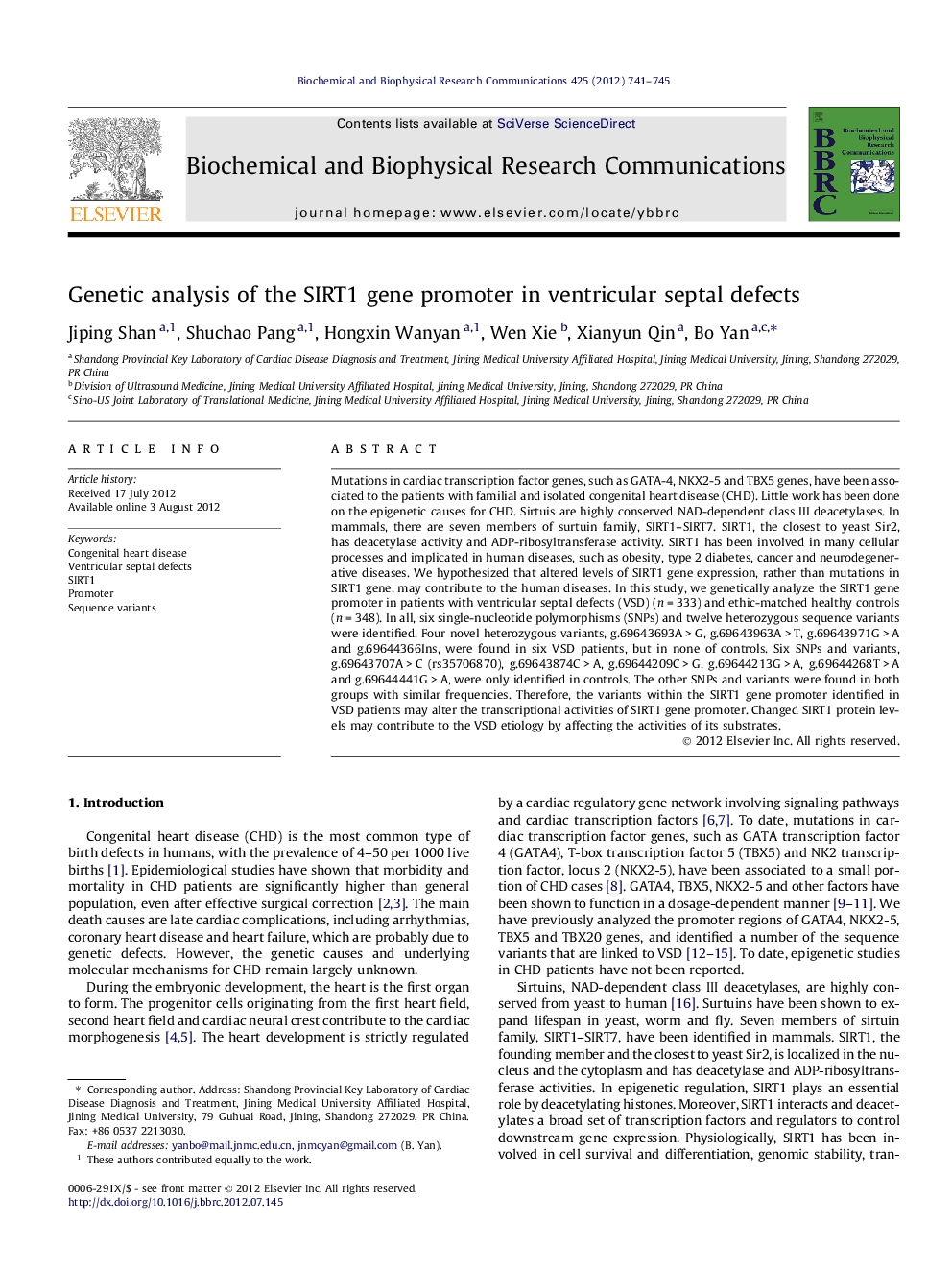| Article ID | Journal | Published Year | Pages | File Type |
|---|---|---|---|---|
| 1929600 | Biochemical and Biophysical Research Communications | 2012 | 5 Pages |
Mutations in cardiac transcription factor genes, such as GATA-4, NKX2-5 and TBX5 genes, have been associated to the patients with familial and isolated congenital heart disease (CHD). Little work has been done on the epigenetic causes for CHD. Sirtuis are highly conserved NAD-dependent class III deacetylases. In mammals, there are seven members of surtuin family, SIRT1–SIRT7. SIRT1, the closest to yeast Sir2, has deacetylase activity and ADP-ribosyltransferase activity. SIRT1 has been involved in many cellular processes and implicated in human diseases, such as obesity, type 2 diabetes, cancer and neurodegenerative diseases. We hypothesized that altered levels of SIRT1 gene expression, rather than mutations in SIRT1 gene, may contribute to the human diseases. In this study, we genetically analyze the SIRT1 gene promoter in patients with ventricular septal defects (VSD) (n = 333) and ethic-matched healthy controls (n = 348). In all, six single-nucleotide polymorphisms (SNPs) and twelve heterozygous sequence variants were identified. Four novel heterozygous variants, g.69643693A > G, g.69643963A > T, g.69643971G > A and g.69644366Ins, were found in six VSD patients, but in none of controls. Six SNPs and variants, g.69643707A > C (rs35706870), g.69643874C > A, g.69644209C > G, g.69644213G > A, g.69644268T > A and g.69644441G > A, were only identified in controls. The other SNPs and variants were found in both groups with similar frequencies. Therefore, the variants within the SIRT1 gene promoter identified in VSD patients may alter the transcriptional activities of SIRT1 gene promoter. Changed SIRT1 protein levels may contribute to the VSD etiology by affecting the activities of its substrates.
► SIRT1 gene promoter was analyzed in large cohorts of VSD patients and controls. ► Four novel heterozygous variants were identified in six VSD patients. ► Six SNPs and heterozygous variants were only found in healthy control. ► Other sequence variants were found in VSD patients and controls with similar frequencies. ► The variants may change SIRT1 levels, contributing to the VSD etiology.
